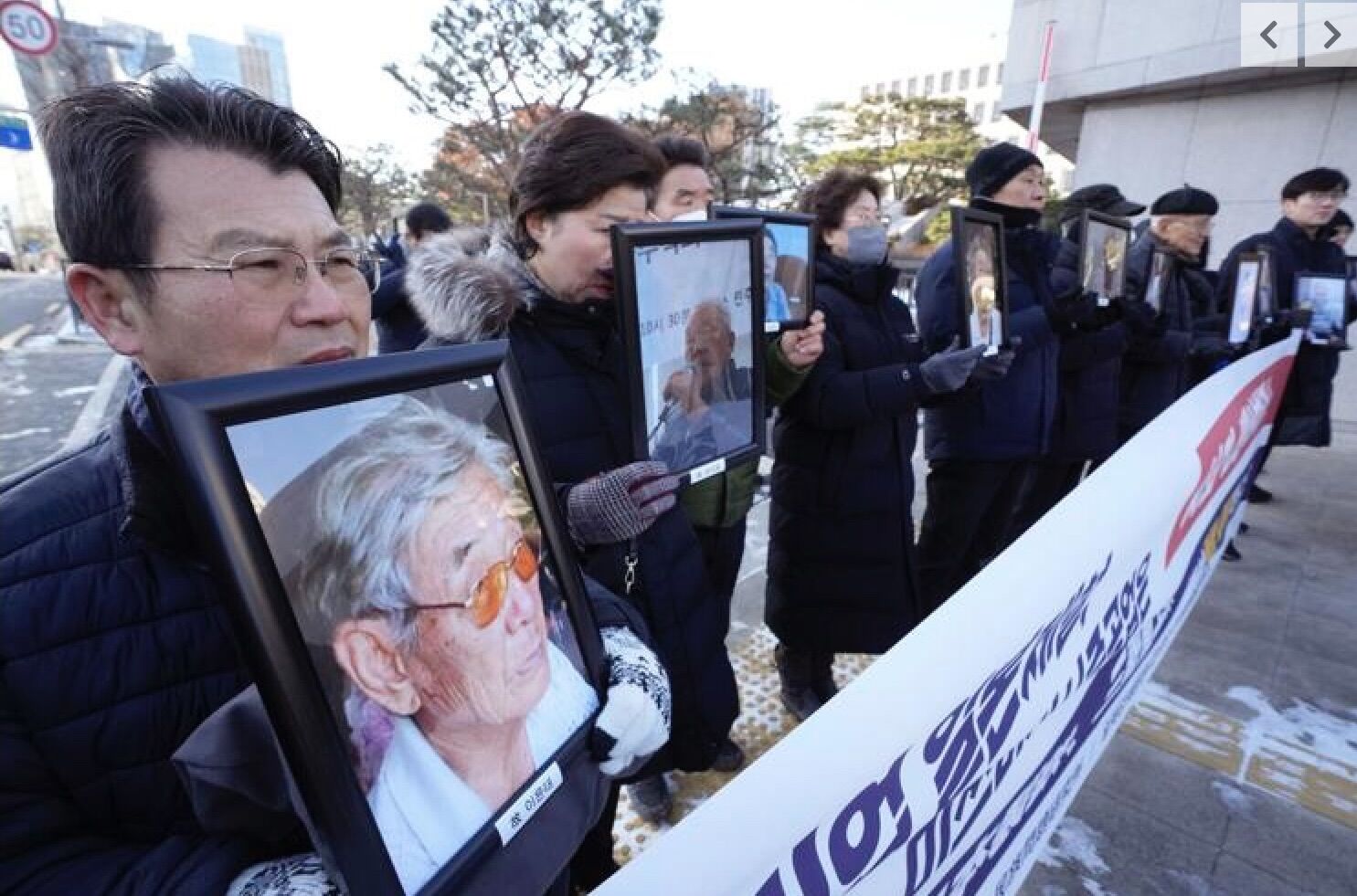South Korea's Supreme Court rules in favor of forced laborers, causing tension with Japan
The South Korean Supreme Court upholds orders for Japanese companies to compensate former forced laborers, causing tension between the two nations and raising questions about the 1965 bilateral agreement.
In a landmark decision, South Korea's Supreme Court has upheld the orders for Japanese companies, Nippon Steel Corp. and Mitsubishi Heavy Industries Ltd., to pay compensation to former forced laborers during Japan's colonial rule. This latest ruling comes after similar decisions in 2018 upheld compensation for wartime labor, leading to strained relations between South Korea and Japan. The Japanese government and the sued firms have expressed disappointment and have lodged protests with Seoul, arguing that the issues were already settled under a 1965 bilateral agreement.
The latest decisions upheld two appellate court rulings against Mitsubishi Heavy Industries Ltd. and Nippon Steel made on lawsuits filed between 2013 and 2014 by several victims of war-time forced labor. The cases involved Korean workers who were conscripted into forced labor by Japanese companies during World War II. However, the South Korean government has reassured that the compensation would be provided by a government-backed foundation, rather than directly from the Japanese firms, aligning with a plan announced in March for solving the wartime labor issue.
This plan has faced backlash in South Korea, with critics arguing that it does not involve a fresh apology from Japan and only entails voluntary contributions from the Japanese companies involved. In response to the latest ruling, Japan's Chief Cabinet Secretary Yoshimasa Hayashi said it was "extremely regrettable and unacceptable." Despite Japan's refusal to acknowledge the rulings, the South Korean government plans to use the government-backed foundation to compensate the petitioners, despite criticism from surviving victims and civil society groups who are calling for Japan's apology and reparations for its wartime crimes and occupation of Korea.
The rulings have come at a time when South Korea's conservative administration has been pushing for closer military ties with Japan, leading to tension between proponents of the compensation and those seeking to strengthen relations between the two countries. The Supreme Court has reaffirmed that the 1965 treaties do not prevent individual victims from claiming compensation from Japanese entities that benefited from forced unpaid labor, setting the stage for further action in the ongoing legal battle between the two nations.




